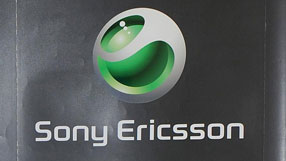
The mobile phone handset maker, whose parent company Sony has a $305-million, tier-one sponsorship agreement with FIFA until the 2014 World Cup in Brazil, believes interaction through sites such as Twitter and Facebook is the best and most intimate way of reaching out to the fan.
However analysts say that at a time of plummeting television advertising rates and the relatively uncharted territory of basing such a campaign on social networking, success could be a difficult task.
"We have made the conscious decision to steer away from the traditional branding route as this supports our fan-centric strategy," director of global marketing partnerships Calum MacDougall told Reuters in an interview.
"Instead we are going straight to online fan communities through popular social networking channels."
The company has launched a Twitter Cup competition where fans have been split into groups along the same lines as the countries for the finals in South Africa next year. The countries yielding the most Tweets will progress to the later stages of the competition.
GLOBAL AUDIENCE
"Fans love being given the opportunity to share their feelings with one another and really get behind their team, and social networking platforms like this allow them to do this," MacDougall said .
The best features, fun and footballing quizzes, straight to your inbox every week.
"What's great about the social networking world is that we can give fans real value and improve their experience by providing ways in which they can enjoy all the fun of the World Cup. These channels also mean that we can reach a truly global audience, which is incredibly important for us."
Observers will be watching the venture with keen interest, especially considering that Sony, as FIFA's 'Digital Life' category sponsor, has preferential negotiation rights for television commercial spots.
"Social media is only one format, it is still an unproven format," Vincent Letang, a senior advertising analyst at Screen Digest told Reuters.
"When you log into a social media environment, you are there to talk to professional peers, not there to buy anything. Establishing a dialogue is really tricky to fine tune and the right approach is very difficult to find.
"During the recession a number of advertisers have been conservative and have postponed expanding with new formats. Traditional TV advertising becomes so cheap and this may prove more cost-effective."
 Join The Club
Join The Club





